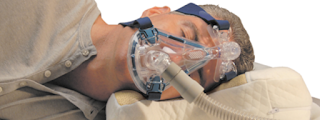They're about as relaxing as they get, and in general, most can't wait until their next massage appointment. They're that good. The room is quiet and warm, you get to lay on a padded surface, and a trained professional will rub out your kinks from head to toe – even asking how well you like the pressure throughout. Really, there's no argument that massages are pretty amazing.
But what exactly do they do to make you so sore the next day? And are there any times you shouldn't get a massage?
In general, you should only book a massage if you're healthy. No colds and no hangovers. Women who are pregnant should wait until their second trimester before going in for a prenatal session. This is due to the amount of toxins that will be pushed throughout your body. During a massage, the muscles are soothed and eased, but that also causes toxins to be pressed out of muscles and released back into the bloodstream. It's what can make you so sore the day after a massage. (When sick or hungover, re-releasing those chemicals can make you feel far worse, or sick all over again.)
It's also a good idea to drink plenty of water so your body can naturally flush out those same substances. The more water you're able to drink, and the better you can keep the body fluid, the less sore you will be. Best of all: you should feel extra good in a few days, once your muscles have recovered and you can take advantage of your new knot-free state.
You might find yourself especially tired. Not just because of the relaxing session you just had, but because your body is working overtime at repairing, flushing, and getting itself back to normal.
There are plenty of healthy benefits to booking a massage, consider signing up today for a relaxing way to remove bodily toxins.













